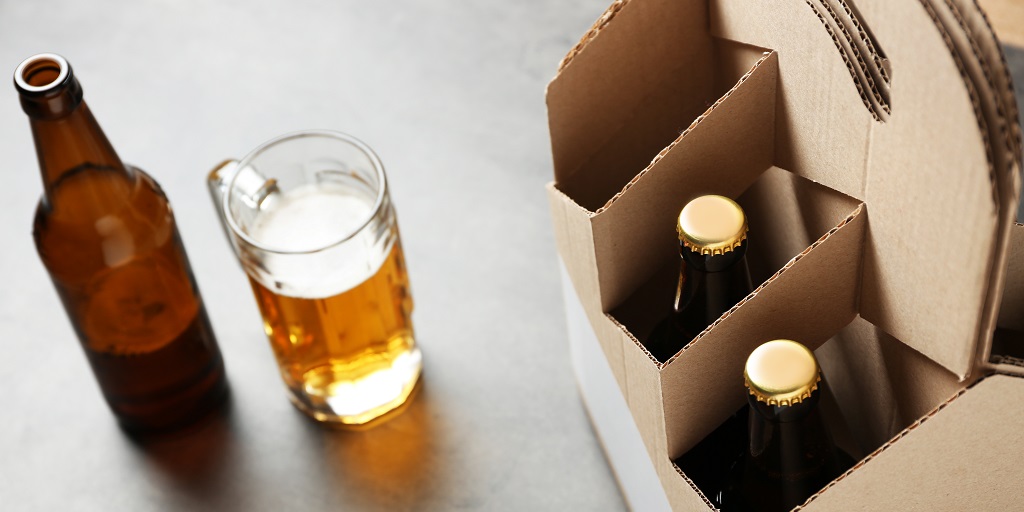
Divided opinions over online alcohol study

Researchers at the University of New South Wales are calling for tougher laws around online alcohol sales after releasing a report finding that online sale are too easy.
In response the industry body Retail Drinks Australia has hit back saying the study is “incomplete and inadequate”.
The UNSW study published this month in the Drug and Alcohol Review claimed that it was “too easy” to buy liquor online, questioning retailers’ commitment to delivery standards.
But Retail Drinks Australia, which represents all off-premise packaged liquor retailers in Australia, has criticised the methodology and depth of the research.
As part of the study, UNSW researchers analysed the sales, marketing and delivery practices of “65 most popular online alcohol retailers in the country”.
One of the study’s co-authors, Stephanie Colbert, said that online sales (which were worth an estimated $569.4 million in 2019 according to IBISWorld data) are creating “new problems” around the accessibility of alcohol to minors, the sale of alcohol to intoxicated people and easy access to cheap alcohol.
She said some wine products available online were “cheaper than a cup of coffee”.
Ease of online alcohol sales
Professor Robyn Richmond of UNSW said many people would be “shocked” at the ease of online sales and said they should be subject to more stringent standards, such as those in pubs or bottle shops.
Cheap or free delivery, the ability to “buy now, pay later” with Afterpay or Zip Pay, the “willingness” by online companies to leave alcohol unattended and “aggressive” sales techniques were making alcohol sales to vulnerable groups too easy, she said.
The researchers said they found that 69 per cent of online alcohol websites would leave alcohol unattended at an address without having verified the purchaser’s age.
12 per cent offered delivery within two hours, they said, and 13.8 per cent allowed customers to purchase alcohol through a “buy now, pay later” scheme.
The study highlighted that there was no requirement for delivery drivers to hold Responsible Service of Alcohol (RSA) certification.
Richmond also criticised Retail Drinks Australia’s self-regulated code, saying it did “little to allay her concerns about risks including minors having access to unattended alcohol”. She said it was unspecified and conjectured that audits were “rare”.
The researchers said they supported the Foundation for Alcohol Research and Education’s position.
Retail Drinks Australia retaliated in a media statement, saying that the researchers had never asked the organisation about its processes, and had just assumed the frequency of audits.
“The co-author of the study Ms Colbert was quick to allege that she doubts many audits are done as part of the Retail Drinks Code, and used this as a basis for disputing its effectiveness,” said Retail Drinks CEO Julie Ryan.
“Since UNSW made no attempt to contact Retail Drinks to ask about the Code or its audit, it probably says something about the rigour of their study that they make statements without attempting to research the facts.”
She claimed that Retail Drinks, through an unnamed audit partner, conducts 200 mystery shopper audits every month to ensure members are complying with their code.
Dispute over the details
Retail Drinks disputed a number of other accusations and findings in the study, which CEO Julie Ryan said were based on preliminary desktop audits of online alcohol retail websites.
She pointed out that there was no audit of delivery practices themselves.According to a UNSW media release, 75.4 per cent of the retailers surveyed “advertised a willingness to leave alcohol unattended at an address”. The researchers did not provide examples of how this was relayed and did not appear to investigate any further beyond what they said was advertised by the retailers.
“Any evaluation of the online alcohol sale and delivery sector must be done in conjunction with a thorough review of retailers’ delivery practices, as the online website is only half of the transaction,” argued Retail Drinks CEO Julie Ryan.
“Attempting to evaluate online alcohol sales solely on the basis of a desktop audit of websites and without any reference at all to the delivery environment leads to vastly inaccurate conclusions, which is the case in the UNSW study.”
Ryan said the Retail Drinks’ Code of Conduct covers 80 per cent of all alcohol sold online in Australia through the organisation’s existing signatories.
She explained that the code bans any alcohol being delivered unattended on the same day, and ensures all deliveries must be to a person over 18.
Ryan said that as a result of the code, all signatories must ensure that all drivers be trained in a home delivery RSA course and be able to recognise legal IDs and not place deliveries with intoxicated persons.
“It is disappointing that UNSW would criticise the significant work already done by the government and which continues to be done in evaluating this emerging sector.
“With the combination of state and territory liquor legislation and regulations, the Retail Drinks Code and the significant focus of the liquor industry on responsible practices, there is no basis to state that the existing regulatory scheme is inadequate and no study has been produced to the contrary,” said Ryan.



